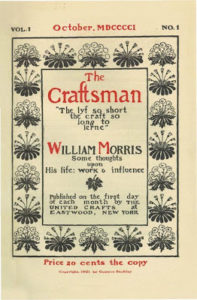By STELLA WONG

Spooks (Pidgin)
Iowa City
Re: M Moore
This is the mess.
This is the age we wrought.
Saturday night I’m at the kitchen window listening to my neighbors fight. Theirs is the only light on, pungent and pouring out onto the fire escape, illuminating a coffee can. I’ve counted five cigarette butts so far.
“I can’t keep doing this, bro,” the girl shouts. Glass shatters thick against a wall in their apartment. “I can’t keep doing and doing this.”
The kettle screeches and out goes the mug in my hand and the spoiled red wine all over the windowsill and all over me. Who knows why I’ve set water to boil. A jilted habit of steeping tea to sleep when I had patience with myself. A phantom limb.
There’s a sprint of shouts, one voice trampling another, and then a long, feral cry. My cat when I was a kid yowled like that when she pawed at a mouse trap. We freed her and she crawled into my mother’s dresser where she stayed for weeks and weeks, burrowing into her fear. The world became a mouse trap.
By JONATHAN LEE
Excerpted from THE GREAT MISTAKE ©2021 by Jonathan Lee, published by Alfred A. Knopf. (Pre-order here)
One night, out walking, unable to sleep, and more fatigued than usual by his endlessly unfolding apprenticeship, the eighteen-hour days, the bugs that puncture his skin every night, the lack of money for real milk or for visiting his favorite sister, Andrew saw a man in the street who was raising a gun and pointing it at what?
A young mastiff, thin and weary-looking, staggering for a place to sleep.
By JINJIN XU
#1
New York City March 17, 2020
For the past few days, I’ve vacillated between panic, helplessness, and feeling like a prophetic, burning witch. I spent the first two months of this year watching the pandemic take hold of China—from the arrest of Dr. Li WenLiang for spreading “false rumors,” to Wuhan and the whole country going into lockdown, to my friends mailing masks back home to their families in China—sitting in my NYC apartment as the virus swept across Korea, Iran, Italy, making its way across the globe towards me.
Join us as we celebrate The Common contributor, Ricardo Maldonado’s, Pub Day with poems in both English and Spanish from his debut book of poetry, The Life Assignment.
I Give You My Heart
I find myself on my feet with fifteen leaves.
Everything carries its own light on the walls.
I woke up to slaughter, my heart opening
to cemeteries of moon—
the parasites, the drizzle. The mud crowning
the undergrowth with immense sadness.
I knew death when I dressed
in my uniform.
I found the index of solitude: my country
in its legal jargon, its piety, its fiction—
Yes. It loves me, really.
I give my blood as the blood of all fish.

Jackson Heights, Queens
By the time you read this, more of my neighbors will be dead.
And yet, on this sunny spring day that belies the grim headlines, I need to go for a walk, that most mundane of human activities. I need to pretend that life is normal. To forget that just a short distance from my apartment stands Elmhurst Hospital, the epicenter of the coronavirus within New York City, itself America’s epicenter.

“Nuns fret not at their convent’s narrow room,” I intoned solemnly when things were normal back in the BC days (Before COVID). “In truth the prison, unto which we doom/Ourselves; no prison is.” I winked at my “Forms in Poetry” class to let them know I felt their pain. It turned out to be our last face-to-face meeting for the semester. We were studying the sonnet and I’ve always used William Wordsworth’s love poem to strict forms as a pep talk for beginning prosodists. “And hence for me,/In sundry moods, ‘twas pastime to be bound/Within the Sonnet’s scanty plot of ground.”
Easy for you to say, I tell my three-weeks-ago self. I had no idea what was about to hit us. I’ll bet my shrinking TIAA stash that you didn’t either.

Last May, having exhausted all possible local options, my husband and I got into our car and drove one hundred miles west. We left home early that morning in search of two specific things: better medical care and a definitive diagnosis.
During that first drive into Manhattan, we held hands. Almost ten years into our marriage, it’s something we rarely do anymore — and certainly not for prolonged periods of time. Looking back now, I was holding on for dear life.
With AIMÉE BAKER

Your name: Aimée Baker
Current city or town: Plattsburgh, NY
How long have you lived here: Technically in Plattsburgh itself, 1 year. In the surrounding area, 30 years.
Three words to describe the climate: Bitterly cold, snowy
Best time of year to visit? Unless you can handle extreme cold, winter and second winter (also known as spring) may not be the best choice. We often get down to -20 to -30 wind chills here. The best time to come is during the fall when the hills and mountains turn red and gold with the changing leaves.
By TYREE DAYE
What did I know of skylines,
of a sea of brown faces not in a field,
but walking down Lenox Avenue?